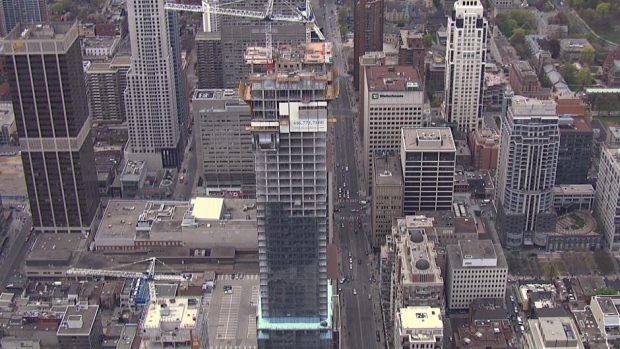OTTAWA - Most Toronto condominium projects do not begin construction until 70 per cent of units are sold, curbing the risk of speculation, Canada's housing agency said on Tuesday in a report that suggested overbuilding fears may be overdone.
A prolonged Canadian housing market boom, particularly in the two major markets of Toronto and Vancouver, has sparked fears of a bubble. Condo construction has jumped in both cities to meet the demand of buyers priced out of more expensive detached homes.
But the Canadian Mortgage and Housing Corp report noted 79 per cent of projects begin construction after reaching 70 per cent presale threshold, and that current unsold inventory is largely concentrated in downtown Toronto and the suburb of Markham, where condo markets are more active.
"Inventory management therefore continues to be necessary to make sure that condominium units currently under construction do not remain unsold upon completion," the report said.
The CMHC, which has played down the likelihood of a national bubble while flagging what it sees as overbuilding and overvaluation in some cities, said condos account for about 50 per cent of residential construction in Toronto.
Some 43,860 units were under construction across Toronto in the first quarter of 2016, and 1,373 units were completed and unsold. The unabsorbed inventory rate was 5.8 per cent, the lowest level in the past two years.
"The current inventory level is low compared to the highs witnessed during the early 1990s and has eased from a slight increase in 2015," the report noted.
Toronto's last housing bubble burst in the late 1980s, fueled by huge speculative investment in the condo market, but the CMHC said the same risks were not seen in the current market.
It said more conservative underwriting by most lenders have increased pre-sales to the 70 per cent threshold.
Still, some speculation was occurring, either in small projects, in projects by large-scale reputable developers who have more equity available, or in multi-phase projects with high or full absorption in their early phases, it said.
The average absorption rate in Toronto was unchanged at 94 per cent, while the average project size has increased to 280 units in the first quarter of 2016 from 205 units in the first quarter of 2014, the report showed.










